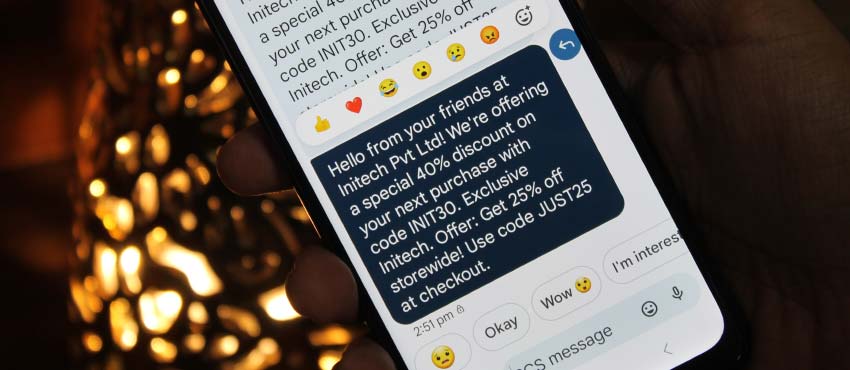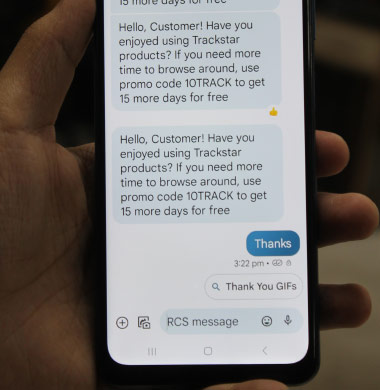Below are the key advantages of using a Bulk SMS gateway:

-
High Reach and Instant Delivery:
SMS has an incredibly high open rate, with nearly all messages being read within minutes of receipt. By utilizing a Bulk SMS gateway, businesses can instantly deliver their messages to a large number of recipients, ensuring that their communications are received and read promptly.
-
Quick and Easy Setup:
Setting up a Bulk SMS campaign is generally straightforward and can be accomplished within a short period. Many Bulk SMS gateways provide user-friendly interfaces or APIs, making it simple for businesses to integrate SMS functionality into their existing systems or applications.
-
Cost-Effective Marketing:
Compared to traditional advertising channels such as print, radio, or TV, Bulk SMS is much more cost-effective. It requires minimal production costs, and the charges per SMS sent are very low, especially when compared to potential returns through increased customer engagement and sales.
-
Higher Conversion Rates:
Due to the intimate nature of SMS, recipients tend to engage more actively with SMS messages than other advertising. This higher level of engagement can lead to improved conversion rates, whether the goal is to drive sales, increase website visits, or encourage event attendance.
-
Reliable and Secure:
Bulk SMS gateways typically employ robust infrastructure and redundant systems, ensuring that messages are reliably delivered. Additionally, SMS communication is generally considered more secure than other messaging apps, reducing the risk of messages being intercepted or lost.
-
Measurable Results:
Bulk SMS campaigns can be easily tracked and measured. Businesses can monitor metrics such as delivery rates, open rates, click-through rates, and response rates. This data allows them to evaluate the success of their campaigns and make data-driven decisions for future improvements.
-
Real-Time Communication:
Bulk SMS allows businesses to send time-sensitive information or updates in real-time. This is particularly useful for sending alerts, notifications, reminders, or emergency text messages to the customers, employees, as well as stakeholders.
-
Targeted and Personalized Messaging:
Bulk SMS gateways often provide options for segmenting recipients based on various criteria such as demographics, location, or behavior. This allows businesses to send personalized messages to specific groups, increasing the relevance and effectiveness of their campaigns.
-
Integration with Other Marketing Channels:
Bulk SMS can complement other marketing channels, such as email marketing or social media. Businesses can use SMS to drive traffic to their website or social media platforms, resulting in a more integrated and cohesive marketing strategy.
-
Enhanced Customer Support:
Bulk SMS can be used for customer support and service updates. Businesses can send order status notifications, appointment reminders, or respond to customer queries via SMS, offering a convenient and efficient communication channel.
-
Customer Engagement and Loyalty:
Consistent and relevant communication through SMS helps to make stronger relationships with customers. By providing valuable content, exclusive offers, or updates, businesses can enhance customer loyalty and retention.
-
High Delivery Success Rate:
SMS has an impressive delivery success rate compared to email or other messaging platforms. It is less likely to end up in a spam folder, ensuring that messages reach the intended recipients effectively.
